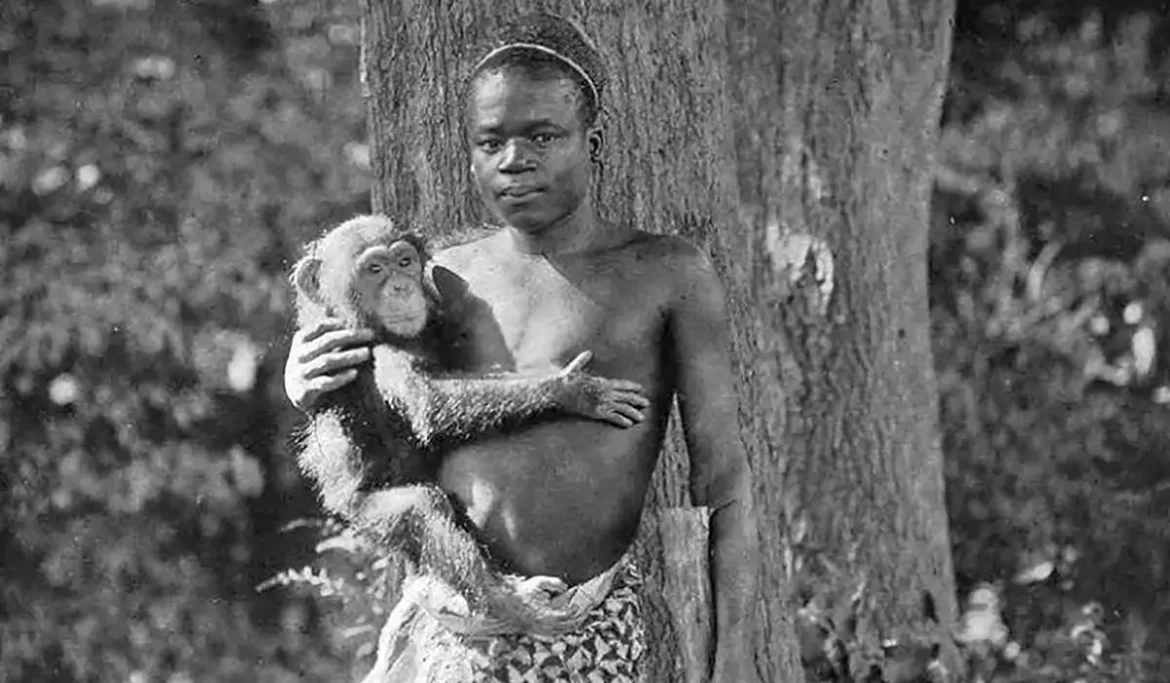Ota Benga was a Mbuti pygmie tribesman born in the Ituri Forest of the Congo in 1883. Benga married young and fathered two children, but his dreams of living a normal life were shattered when, sometime in the 1890s, Belgian colonial troops came across his village and killed his entire family while he was out hunting.
Without a family or tribe, Benga was lost and had no place in the society he had grown up in. Surprisingly, at this point, some of Benga’s most trying times were still ahead of him.
Shortly after the death of his family, Benga was captured by slave traders and put to work on an industrial farm. It was there, in 1904, that Benga was discovered by, of all people, an American businessman named Samuel Verner with racist beliefs about evolution.
He thought that Benga, with his short stature, dark skin, and sharp teeth, filed as part of a cultural ritual, was a “missing link” between humans and our evolutionary ancestors. He then purchased Benga for a bag of salt and a bolt of cloth.
Verner’s group promptly brought Benga to St. Louis, where he was the hit of the 1904 World’s Fair. Following the exhibition, Benga briefly returned to Africa, where he remarried, but returned to the U.S. after his wife died from a snake bite.
He was later placed in the ape enclosure at the Bronx Zoo, displayed as part of the New York Anthropological Society’s exhibit on human evolution. Local black clergy were appalled by the exhibit and demanded Benga’s release. They successfully lobbied the governor to force the zoo to shut down the display.
Benga then briefly lived in Virginia working at a tobacco plant. In 1914, he decided to return to Africa, but when World War I broke out, he was unable to do so.
On March 20, 1916, depressed at the thought of not being able to return home, Ota Benga shot himself in the heart and died, bringing an end to one of history’s most heartbreaking yet also interesting stories. Pamela Newkirk would later document the life of Ota Benga in the award-winning Spectacle: The Astonishing Life of Ota Benga.

